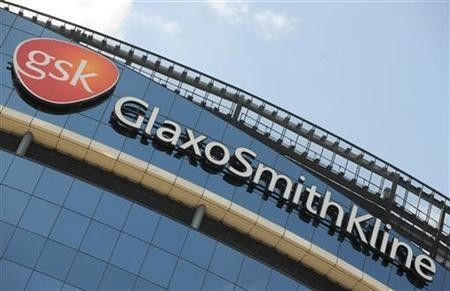Human Genome Rejects Glaxo's Unsolicited $2.6 Billion Bid

(Reuters) - Human Genome Sciences Inc has rejected an unsolicited bid worth around $2.6 billion from long-time partner GlaxoSmithKline Plc, marking a new takeover battle in a drugs sector that has been swept by M&A recently.
The U.S. pioneer of gene-based drug discovery, which sells a new drug for lupus with GSK, said on Thursday the offer of $13 per share did not reflect the value inherent in the company.
It has hired Goldman Sachs and Credit Suisse to assist with the exploration of strategic alternatives, including a possible sale. GSK has been invited to participate in that process.
The Rockville, Maryland-based firm was formed 20 years ago with the mission to isolate genes and identify their function in order to develop new drugs. Over the years it has had a rollercoaster ride as hopes for its drugs have ebbed and flowed.
GSK's offer represents an 81 percent premium to its closing stock price on Wednesday of $7.17, but investors are hoping for more and the shares more than doubled to $14.41 in pre-market Nasdaq trading by 1310 GMT.
With 198.5 million shares in issue, GSK's $13 bid would value Human Genome at around $2.6 billion.
Britain's biggest drugmaker said the rebuff was disappointing as its offer would give investors immediate and certain value that is superior to what we believe Human Genome Sciences can reasonably expect to create as a standalone company.
GSK Chief Executive Andrew Witty wrote to Human Genome boss Tom Watkins on April 11 setting out the proposal, stating that he was prepared to commence a cash tender offer with no financing or due diligence condition.
Buying Human Genome would give GSK full rights to partnered drugs, which include not only Benlysta for lupus but also promising experimental drugs for heart disease and diabetes. GSK expects to achieve $200 million in cost synergies by 2015, with the deal boosting earnings beginning in 2013.
Cowen & Co analyst Eric Schmidt said GSK was likely to ultimately seal a deal for Human Genome.
The 81 percent premium versus yesterday's close is a big number, and I'm sure GSK is likely to pay a little bit more to get the deal done. I think it's very likely to be sold to GSK at around $15 or so a share, Schmidt said.
I doubt anyone else will come in. It's going to be hard for another company to pay that sort of a premium not having the inside scoop on Benlysta or on anything else these two companies are collaborating on.
GSK has long been rumored a potential acquirer of Human Genome, since the two companies already collaborate on a number of medicines, including Benlysta, the first new treatment for lupus in half a century.
Still, the decision to pull the trigger on a takeover attempt may surprise some investors, since GSK management has tended not to buy out partners it is working with in the past.
BEYOND BENLYSTA
Analysts said GSK clearly saw value beyond just Benlysta. The two companies are also collaborating on a high-profile experimental heart drug called darapladib, which is in Phase III development.
Mark Clark, an analyst at Deutsche Bank, said darapladib was the biggest ticket pipeline opportunity, with up to $10 billion annual sales potential, although researchers will not know if it actually works until key trial results in 2013 or 2014.
Benlysta, which is to a 50:50 profit share deal between the two companies, has got off to a slow start but is still seen as having potential sales of $2.15 billion by 2016, according to consensus forecasts compiled by Thomson Reuters Pharma.
Investors are likely to be emboldened in thinking they can get more for their Human Genome shares in the light of recent developments highlighting the appetite among Big Pharma for biotech assets.
Only on Wednesday, Illumina Inc saw off a $6.8 billion hostile bid from Roche Holding AG. That was the latest in a series of bid battles - some successful and some not - across the drugs industry recently.
Many drugmakers are seeking to do deals to bolster their pipelines of new medicines at a time when old products are going off patent. Buying Human Genome would give GSK full economic benefits of those medicines it currently partners with the U.S. firm and is a sign of confidence on their commercial potential.
Human Genome said it had asked for more information from GSK about progress with the experimental drugs the two companies have worked on together, including darapladib and diabetes treatment albiglutide.
GSK, which is being advised by Lazard and Morgan Stanley, said the plan to acquire Human Genome would not affect its intention to repurchase between 1 billion and 2 billion pounds ($1.6-3.2 billion) in shares in 2012.
--
© Copyright Thomson Reuters {{Year}}. All rights reserved.





















